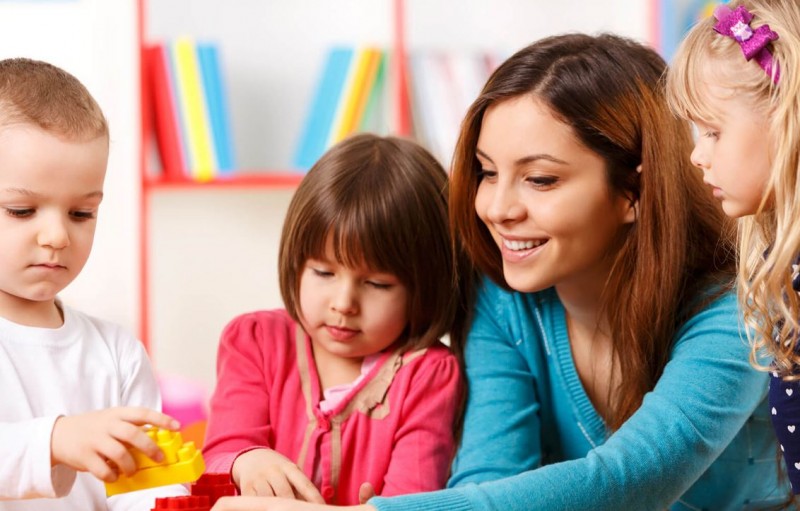
Early childhood education plays a critical role in shaping a child's development and future success. It encompasses the period from birth to around eight years old, which is a crucial phase in a child's life for learning and growth. During this time, children undergo significant cognitive, social, and emotional development, making it vital to provide them with a solid foundation for their future endeavors.
Introduction
Early childhood education refers to the formal and informal educational experiences that children receive before entering primary school. It focuses on providing young learners with the necessary skills, knowledge, and experiences to thrive academically, socially, and emotionally. The importance of early childhood education cannot be overstated, as it sets the stage for a child's lifelong learning journey.
Definition of Early Childhood Education
Early childhood education encompasses a wide range of experiences, including structured learning environments, play-based activities, and interactions with caregivers and educators. It involves age-appropriate curriculum and teaching methods that support children's holistic development, including their cognitive, physical, social, emotional, and language skills.
Benefits of Early Childhood Education
Early childhood education fosters cognitive development by stimulating children's curiosity, critical thinking, and problem-solving abilities. It provides opportunities for exploration, discovery, and hands-on learning, laying the foundation for future academic success.
Engaging in early childhood education promotes the development of social skills, such as cooperation, empathy, and conflict resolution. Children learn to interact with peers, form friendships, and regulate their emotions, setting the stage for positive relationships and emotional well-being in later life.
Through early childhood education, children develop language and communication skills, which are essential for effective expression, comprehension, and literacy. They are exposed to rich vocabulary, storytelling, and language-building activities that enhance their verbal and written communication abilities.
Early childhood education prepares children for the transition to formal schooling by equipping them with essential skills and knowledge. It helps them develop self-confidence, independence, and a positive attitude towards learning, ensuring a smooth and successful start to their academic journey.
Play is an integral part of early childhood education as it facilitates holistic development. Play-based learning provides children with opportunities to explore, experiment, and make sense of the world around them. It nurtures their creativity, imagination, problem-solving skills, and social interactions, fostering a love for learning.

To ensure optimal learning experiences, early childhood educators employ various effective teaching strategies, including:
Recognizing that each child is unique, individualized instruction tailors learning activities to meet the specific needs, interests, and abilities of each learner. It promotes personalized learning and maximizes educational outcomes.
Hands-on learning engages children actively in the learning process through manipulative materials, experiments, and sensory experiences. It enhances their understanding, retention, and application of knowledge and skills.
Encouraging active parental involvement in early childhood education strengthens the home-school partnership. It promotes a supportive learning environment, enhances children's learning outcomes, and fosters positive parent-child relationships.
Early childhood educators play a vital role in nurturing children's development and facilitating their learning experiences. They create a safe, inclusive, and stimulating environment where children can explore, learn, and thrive. Educators also collaborate with families and communities to support children's holistic growth.
Despite the importance of early childhood education, there are several challenges that need to be addressed. These challenges include limited access to quality programs, inadequate funding, and the need for qualified educators. Solutions involve increasing investment in early childhood education, expanding access to high-quality programs, and providing professional development opportunities for educators.
Recognizing the significance of early childhood education, governments and organizations worldwide have implemented supportive policies and initiatives. These efforts aim to improve access to quality early childhood education, enhance professional standards for educators, and promote research and innovation in the field.
Conclusion
Early childhood education forms the bedrock for a child's future success and well-being. It provides a strong foundation for cognitive, social, emotional, and language development, setting the stage for lifelong learning. By investing in quality early childhood education and supporting educators, we ensure that every child has the opportunity to reach their full potential.
FAQs
FAQ 1: What age range does early childhood education cover?
Early childhood education typically covers the period from birth to around eight years old. However, specific programs and initiatives may have varying age ranges and target different stages of early childhood.
FAQ 2: How does early childhood education contribute to a child's future success?
Early childhood education lays the groundwork for a child's future success by promoting cognitive development, social and emotional skills, language acquisition, and school readiness. It nurtures a love for learning and provides a strong foundation for academic achievements and personal growth.
FAQ 3: Is early childhood education only beneficial for academically gifted children?
No, early childhood education benefits all children, regardless of their academic abilities. It supports holistic development, including cognitive, social, emotional, and language skills, catering to the individual needs and strengths of each child.
FAQ 4: What can parents do to support their child's early education?
Parents can support their child's early education by providing a nurturing and stimulating home environment, engaging in meaningful interactions, reading together, and actively participating in their child's learning journey. Communication with educators and involvement in school activities also contribute to a child's educational experience.
FAQ 5: What are some examples of successful early childhood education programs?
There are numerous successful early childhood education programs worldwide. Examples include the Reggio Emilia approach, Montessori method, HighScope curriculum, and Head Start program. These programs emphasize hands-on learning, child-centered approaches, and collaboration between educators, families, and communities.
NEET UG Result 2023 to be released next week
IIT JEE response sheets to be out today at 5 pm on jeeadv.ac.in
Karnataka School textbooks revision will be done this year itself, says Minister